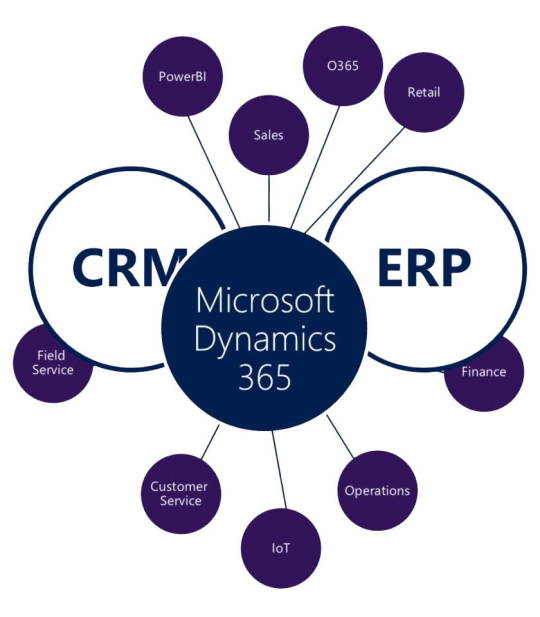Don't wanna be here? Send us removal request.
Text
Exploring about Implementing of Microsoft Dynamics 365 Finance in India
Implementing Microsoft Dynamics 365 Finance in India, or anywhere else for that matter, involves a series of steps and considerations. Dynamics 365 Finance is an enterprise resource planning (ERP) system that can help organizations manage their financial operations and gain insights into their financial performance. Here's a high-level overview of the steps you might take for an implementation in India:
Needs Assessment: The first step is to understand the specific needs and requirements of your organization. Identify the financial processes that need improvement and define your goals and objectives for the implementation.
Select an Implementation Partner: It's often advisable to work with a certified Dynamics 365 implementation partner. These partners have experience and expertise in implementing the system and can help tailor it to your specific needs.
Licensing and Software Acquisition: Purchase the necessary Dynamics 365 Finance licenses for your organization. Ensure that you have the appropriate number of user licenses and any required add-ons.
Infrastructure and Technical Setup: Prepare your IT infrastructure to support the software. Ensure that you have the required hardware, network, and software prerequisites. This may also involve cloud setup if you opt for the cloud-based version of Dynamics 365.
Customization and Configuration: Work with your implementation partner to configure Dynamics 365 Finance to meet your specific business needs. This may involve setting up chart of accounts, workflows, approval processes, and other customization.
Data Migration: If you are transitioning from another system, you'll need to plan and execute a data migration strategy. Ensure that your historical financial data is accurately transferred to Dynamics 365.
User Training: Train your staff on how to use Dynamics 365 Finance effectively. This can involve creating training materials and providing hands-on training sessions.
Testing: Conduct extensive testing to ensure that the system works as expected and that it meets your business requirements. This should involve unit testing, integration testing, and user acceptance testing.
Go-Live: Once testing is successful, you can go live with Dynamics 365 Finance. This is the point at which you'll start using the system for your day-to-day financial operations.
Support and Maintenance: Post-implementation support is crucial. Be prepared to address any issues, provide ongoing training, and implement updates and patches as necessary.
Compliance with Indian Regulations: In the case of India, it's essential to ensure that your ERP system complies with the country's specific financial and taxation regulations. Dynamics 365 Finance can be configured to support Goods and Services Tax (GST) and other Indian tax requirements.
Continuous Improvement: ERP implementations are not a one-time project. It's important to continually assess and improve your system to align with changing business needs and regulatory requirements.
Change Management: Effective change management is essential to help your employees adapt to the new system. Address resistance to change and provide adequate support during the transition.
Keep in mind that Dynamics 365 Finance can be customized extensively, so the specifics of your implementation will depend on your unique business requirements. Working with an experienced implementation partner can greatly facilitate the process, and they can help ensure that the system is tailored to the needs of your organization in the context of the Indian business environment.
Is this conversation helpful so far?
#Microsoft Dynamics 365 F&O Implementation#Microsoft ERP Implementation Partner India#Dynamics 365 Finance & Operations Implementation Partner#Microsoft ERP Implementation Partner
0 notes
Text
Unlocking Manufacturing Excellence with Microsoft Azure!
In the digital age, innovation is the key to progress. Microsoft Azure empowers manufacturers with digital twins and the cloud to design, simulate, and validate sustainable products and processes. Whether you're just beginning your digital journey or looking to enhance your existing capabilities, Microsoft Azure is here to revolutionize the way you operate and elevate your business to new heights. Let's explore five compelling reasons why you should consider this game-changing solution. With the powerful capabilities of Microsoft Azure, manufacturers can achieve multiple goals: ⦁ Fostering Agile Factories: Microsoft Azure's flexibility empowers manufacturers to cultivate and establish agile factories, promoting adaptability in response to dynamic market demands. ⦁ Real-Time Performance Data and Enhanced Visibility: Manufacturers gain access to real-time performance data and heightened visibility into production flows. This invaluable insight enables them to optimize operational equipment effectiveness and enhance plant efficiencies while reducing operational costs. ⦁ Predictive Insights for Smooth Operations: Azure delivers predictive insights for equipment health monitoring, proactively alerting operators to potential issues. This, in turn, ensures that production lines run smoothly, with minimal disruptions. ⦁ Actionable Intelligence for Cost Reduction: Manufacturers can harness actionable intelligence to act swiftly. This includes updating and improving product designs to lower costs, creating a more competitive edge in the market. ⦁ Autonomous Supply Chains for Swift Deliveries: Azure facilitates the creation of autonomous supply chains, streamlining product shipping for faster, end-to-end visibility. This results in expedited deliveries and enhanced customer satisfaction. Microsoft Azure empowers manufacturers to not only meet these goals but also unlock new levels of efficiency and productivity in the ever-evolving landscape of the manufacturing industry. Ready to elevate your manufacturing game? Reach out to Tectura and explore the boundless opportunities of Microsoft Azure. 🚀
0 notes
Text
Ideas for Microsoft ERP Implementation Partner India CRM and ERP development
Implementing Microsoft ERP systems in India can be a complex process, and it is important to find the right partner to help with CRM and ERP development. Here are ten ideas for Microsoft ERP Implementation service partners in India:

Industry expertise: Look for a partner who has experience in your specific industry. They need to understand the unique challenges and needs of your business.
Local presence: A local partner in India can provide better on-site support and have a deeper understanding of the local business environment.
Microsoft Certified: Make sure the partner is a certified Microsoft Partner with expertise in Microsoft Dynamics 365, as this demonstrates their commitment to the quality and expertise of Microsoft’s products.
Customizability: Your ERP system should adapt to your unique business processes. Choose a partner with strong customization and development capabilities.

Integration Skills: A good ERP partner should have experience integrating Microsoft ERP solutions with other business applications, such as CRM, eCommerce, and HR systems.
Scalability: Your ERP system should be able to grow with your business. Make sure the partner has experience implementing scalable solutions.
Data Protection and Compliance: Data protection and compliance with local regulations like GST are important in India. Choose a partner that has the expertise to ensure that your ERP system complies with all necessary regulations.
Training and Support: The partner should provide comprehensive training for your employees and provide ongoing support for the ERP system.
Case studies and references: Ask for case studies and customer references to check the partner’s track record and their prior implementation success.

Change Management: Consider a partner that provides change management services to help your organization smoothly transition to a new ERP system.
Cloud expertise: When considering a cloud-based ERP solution, look for a partner with expertise in cloud deployment and management.
Portability and Availability: Ensure that the ERP system is accessible on mobile devices, as this is becoming increasingly important for businesses in India.
Performance Improvement: As your business grows, a good partner should have ways to improve the performance of your ERP system.
Innovation and Enhancements : Choose a partner who stays on top of the latest Microsoft ERP advancements and can help you make the most of new features and updates.
Consider your business’ specific needs, budget and long-term goals while choosing a Microsoft ERP implementation partner in India. Evaluate potential partners carefully to ensure ERP functions well in line with your business objectives.
#Microsoft ERP implementation partner in India#Microsoft ERP implementation partner#Dynamics 365 F&O Implementation
1 note
·
View note